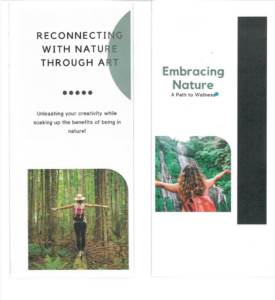Campus Nature Rx
go.ncsu.edu/readext?1009012
en Español / em Português
El inglés es el idioma de control de esta página. En la medida en que haya algún conflicto entre la traducción al inglés y la traducción, el inglés prevalece.
Al hacer clic en el enlace de traducción se activa un servicio de traducción gratuito para convertir la página al español. Al igual que con cualquier traducción por Internet, la conversión no es sensible al contexto y puede que no traduzca el texto en su significado original. NC State Extension no garantiza la exactitud del texto traducido. Por favor, tenga en cuenta que algunas aplicaciones y/o servicios pueden no funcionar como se espera cuando se traducen.
Português
Inglês é o idioma de controle desta página. Na medida que haja algum conflito entre o texto original em Inglês e a tradução, o Inglês prevalece.
Ao clicar no link de tradução, um serviço gratuito de tradução será ativado para converter a página para o Português. Como em qualquer tradução pela internet, a conversão não é sensivel ao contexto e pode não ocorrer a tradução para o significado orginal. O serviço de Extensão da Carolina do Norte (NC State Extension) não garante a exatidão do texto traduzido. Por favor, observe que algumas funções ou serviços podem não funcionar como esperado após a tradução.
English
English is the controlling language of this page. To the extent there is any conflict between the English text and the translation, English controls.
Clicking on the translation link activates a free translation service to convert the page to Spanish. As with any Internet translation, the conversion is not context-sensitive and may not translate the text to its original meaning. NC State Extension does not guarantee the accuracy of the translated text. Please note that some applications and/or services may not function as expected when translated.
Collapse ▲University and college campuses offer greenspaces even in developed urban areas. Many schools are embracing this space as a resources to support their students “social, physical and mental well-being, university performance, [and] education outcomes” (Foellmer, 2021).
I have been working with staff and students at both NC State University and University of North Carolina Wilmington to provide opportunities for students to engage with nature and improve their overall health. These skills can carry forward with the students for the remainder of their lives and provide them with a readily available tool to build self-efficacy to better cope with the challenges they face throughout their lives.
At NC State I work with Housing Student Resident Assistants to create planting activity each semester. Students are offered the opportunity to choose and pot up a houseplant to take to their dorm or apartment. Care sheets for each plant are that also list some of the benefits of keeping houseplants. I also work with an Interpersonal Violence Response Coordinator to provide plant material they can use with students seeking services through the Women’s Health Center. Our focus on easy care plants including aloe vera, highlighting its healing properties.

Flyer to promote houseplant planting at NC State
On the University of North Carolina Wilmington campus, I have worked with the Gardening Physical Activity and Wellness Lab to explore ways to improve health with plants. I also work with public health students to develop nature-based activities. Examples include, yoga in the garden, brochures on Reconnecting with Nature through Art and Embracing Nature.

Cover of brochures promoting engagement with nature
I am looking forward to continuing to develop activities for students in higher education and open a door to enjoyment of nature for years to come.
Resources:
NC State – How Parks and Green Spaces Can Improve Your Health
Nature RX at Penn | Wellness at Penn
Nature Rx – The Conservation Foundation
References:
Foellmer, J. Kistemann, T & Anthonj, C. (2021). Academic Greenspace and Well-Being — Can Campus Landscape be Therapeutic? Evidence from a German University, Wellbeing, Space and Society, Volume 2, 100003.




